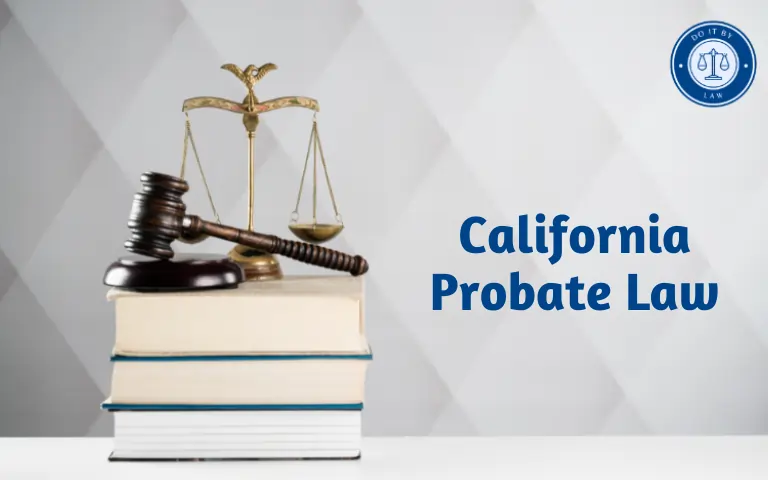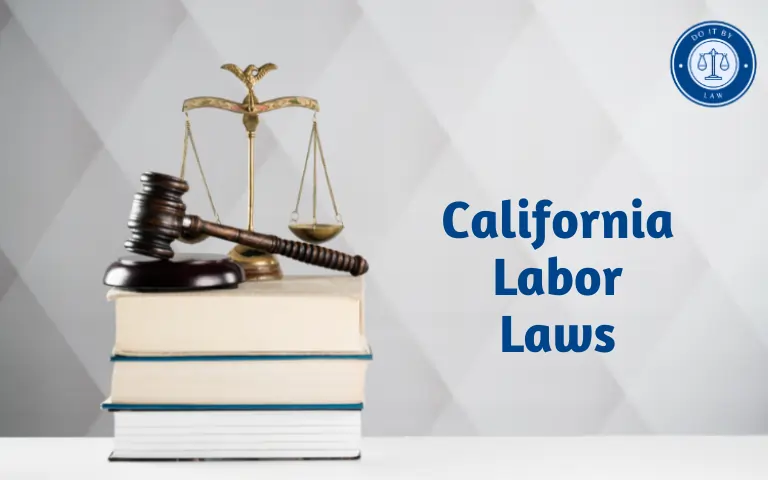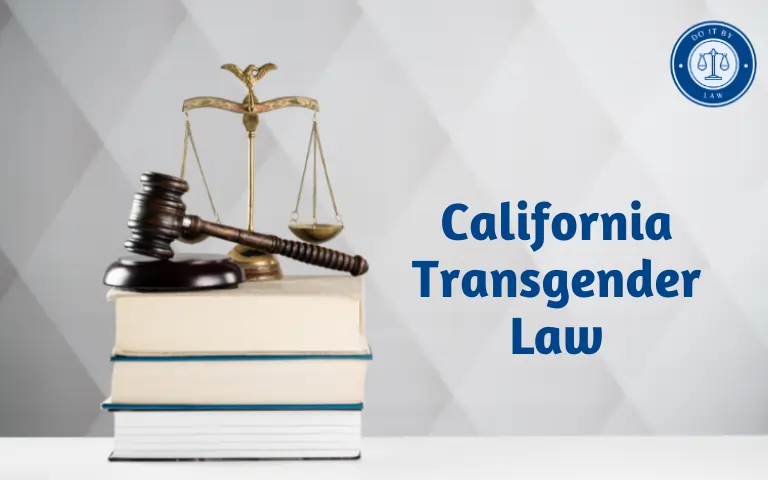California Probate Law: What You Need to Know
California probate law governs the legal process for transferring property from a deceased person’s estate to their rightful heirs and beneficiaries. This involves validating the will, inventorying assets, paying debts and taxes owed, and distributing the remaining property as directed. Here’s an overview of key aspects of California probate procedures and requirements.
When California Probate Law Was Enacted
The origins of probate law in California traced back to statehood in 1850 when California State adopted common law legal traditions from England. The California Probate Code was first enacted in 1931 to codify probate laws and procedures in the state. It has been updated and revised by the California legislature many times, with major overhauls in the 1980s and 1990s. The probate laws aim to provide consistent, orderly, and efficient settlement of estates based on legislative determinations of appropriate wealth transfer policies.
Who California Probate Law Applies To
California probate law applies whenever a California resident or someone owning property in California dies with assets remaining in their individual name that must be distributed properly to rightful takers.
The Probate Code procedures are triggered if the deceased person’s estate exceeds $166,250 in gross value or real estate holdings exceed $55,425. Estates falling below those small estate thresholds may use simplified procedures without formal court-supervised probate.
If the deceased left a valid will, the executor named in the will handles probate guided by the nominated Personal Representative or Probate Referee. If there is no will, the court appoints an estate administrator. The decedent’s heirs or nominated beneficiaries receive notice and have a right to be involved. Creditors can also make claims against the estate.
Key Provisions of California Probate Law and Process
Some of the main steps and requirements governing probate administration under California law include:
Will Validation
- The nominated executor files the will and petitions the probate court to open probate proceedings. The court reviews the will to confirm validity. Key requirements include:
- Signed by the testator and 2 witnesses to validate it. Holographic (handwritten) wills may be exempt.
- The testator must be of legal age and sound mind when making the will.
- Will was not procured by undue influence, fraud, or duress.
Appointing Estate Administrator
- The court officially appoints an executor named in the will or an administrator if there is no will to oversee settling the estate. This fiduciary must faithfully execute duties on behalf of beneficiaries.
Noticing Heirs and Beneficiaries
- The executor must provide formal legal notice to all parties named in the will or entitled to inherit by California intestacy law within 30 days of appointment. This gives them a chance to contest the will if warranted.
Inventorying Assets
- The fiduciary identifies, values, and catalogs all assets comprising the decedent’s probate estate. This inventory must be filed with the court.
Paying Debts and Claims
- Valid creditor claims and estate bills are paid from estate assets. Statutory priority determines the order of payment.
Filing Tax Returns
- Any needed final individual tax returns for the decedent as well as estate tax returns must be prepared and filed.
Petitioning for Final Distribution
- Once administration is complete, the executor petitions the court for an order allowing the final distribution of remaining assets to heirs/beneficiaries according to will instructions or intestacy laws.
Closing the Estate
- After distribution, the fiduciary must file closing statements with the court showing proper payment of all claims, expenses, taxes, and bequests made prior to discharge.
Deadlines for California Probate Law Tasks
The California Probate Code imposes various deadlines on estate administration tasks, including:
- Petitioning to open probate within 30 days of death
- Noticing heirs within 30 days of appointment
- Filing inventory and appraisal within 4 months
- Filing state tax return within 9 months
- Filing federal estate tax return within 9 months
- Petitioning for final distribution within 12 months
- Closing estate within 12 months
The court can grant extensions for larger or complex estates needing more time to resolve issues and prepare for distribution.
Penalties for Violating California Probate Law
If executors or administrators fail to follow Probate Code requirements or abuse their fiduciary role, penalties can include:
- Civil liability for estate losses from negligence or fraud
- Removal as estate fiduciary by the probate court
- Financial restitution and fines
- Criminal prosecution for egregious willful misconduct
Mishandling estate funds or assets or grossly neglecting duties exposes the executor or administrator to both civil liability and criminal penalties under California law.
Recent Changes to California Probate Law
Some notable recent changes to California probate law and procedures include:
- Increase of small estate limits – As of 2022, the threshold for using simplified probate procedures increased from $150,000 to $166,250 for gross estates and $55,425 for real estate, allowing more estates to avoid the full court process.
- Electronic wills recognized – California law was updated to authorize electronic wills using blockchain technology, provided they meet execution formalities.
- COVID-19 protections – Temporary Probate Code amendments granted extensions for filing deadlines and allowed virtual hearings during the pandemic.
- Parent-child exclusion – As of 2021, inherited real estate is excluded from property tax reassessment for transfers between parents and children.
- Higher spousal allowance – Surviving spouses receive an increased $24,000 family allowance from the estate.
Controversies and Challenges in California Probate Law
California’s probate system faces various criticisms and challenges, such as:
- Cost – Attorney fees, appraiser costs, fiduciary commissions, and filing fees can reduce estate assets significantly. Streamlining reforms are sought.
- Delays – Even uncontested probate often takes over a year in California compared to months in some states. Longer cases trigger even bigger losses.
- Contested wills – Bitter fights over interpretations or validity of wills and trustee conducts drain estates through litigation costs. Mediation can help avoid courtroom battles.
- Inconsistencies – Probate rules, procedures, forms, and timelines vary across California’s 58 county courts, creating confusion.
- Privacy issues – Some estates want to avoid probate’s open records bringing public scrutiny of assets and finances. Living trusts can provide an alternative.
- Mistakes and fraud – Complex paperwork raises risks of innocent errors. Unscrupulous executors sometimes embezzle when oversight proves inadequate.
Ongoing efforts to simplify procedures, upgrade technology access, improve consistency statewide, and enhance monitoring aim to reduce probate difficulties while preserving due process and fiduciary accountability.
California Probate Law Guide
Here is an in-depth overview of the probate system in California including wills, intestacy, simplified procedures, court processes, deadlines, and ways to potentially avoid probate.
Wills and Intestacy in California
The California Probate Code recognizes wills and intestate succession as the two primary mechanisms for transferring property after death.
California Will Requirements
California recognizes formally witnessed wills as well as holographic (handwritten) wills meeting certain requirements:
- Signed by the testator and two witnesses for a formal witnessed will.
- Signed by the testator alone if entirely handwritten, dated, and demonstrating intent for a holographic will.
- Testamentary capacity of the testator to make decisions and understand proceedings.
- Freely created without undue influence, duress, or fraud.
The will must also be properly executed and submitted to probate court after death for recognition.
California Intestacy Laws
When someone dies without a valid will in California, the estate is distributed to heirs according to intestacy laws under Probate Code Section 6400. Key distribution patterns include:
- A surviving married spouse inherits 100% of community property and separate property up to $166,250. Additional separate property splits between spouse and children evenly.
- If no spouse survives, but living children or grandchildren, the estate passes 100% to descendants.
- If no spouse or descendants survive, the estate goes to parents equally or nearest ancestors.
- If no family members, assets escheat to California.
California thus prioritizes passing property to spouses first, then descendants, then more distant family before the state inherits by default.
Simplified California Probate Law Processes
For smaller or less complicated estates, California offers simplified probate procedures as an alternative to full-court supervised administration.
Spousal Property Petition
If the estate’s total value falls under community property thresholds, the surviving spouse can file a spousal property petition with the court to have assets transferred to them upon death, avoiding formal probate.
Affidavit Procedure for Small Estates
Where the decedent’s property falls below $166,250 gross value or $55,425 in real estate equity, a sworn affidavit submitted to the court allows summary transfer to heirs or beneficiaries without appointing an executor or full probate.
Expedited Spousal Property Proceedings
Surviving spouses in California also have the option of using expedited procedures within 6 months of death if the decedent’s estate does not exceed $850,000. This abbreviated process simplifies transferring defined spousal property.
Full California Probate Law Process
If an estate does not qualify for simplified probate procedures based on asset values or other factors, formal court-supervised probate administration is required.
Petition the Probate Court
The person nominated as executor in the will or an intestate heir petitions the California probate court in the county where the deceased resided to initiate probate proceedings. This involves filing the original will, death certificate, and initial paperwork. The court sets a hearing date.
Court Appoints Estate Representative
At the appointment hearing, the probate judge reviews submissions to validate that the will is legally permissible, confirms the qualifications of the nominated executor or administrator in intestate cases, and issues formal Letters of Testamentary/Letters of Administration appointing the estate fiduciary.
Notice Heirs, Beneficiaries, and Creditors
Within 30 days, the appointed representative must send required legal notices identifying heirs and beneficiaries from the will or state intestacy law so all parties know of their potential inheritance interest. Notices soliciting creditor claims against the estate assets are also published.
Inventory Assets
The personal representative must file an inventory with the court listing all the decedent’s known assets requiring probate administration, indicating estimated date-of-death fair market values. Property held jointly or in trusts may pass outside probate to designated beneficiaries and need not be inventoried.
Pay Valid Debts and Taxes
The estate fiduciary uses inventory assets to pay outstanding bills, taxes, fees, and creditor claims according to Probate Code priority before distributing them to heirs. Creditors have strict deadlines to file claims against the estate.
Petition for Final Distribution
Once assets are collected, taxes and debts paid, litigation resolved, and the estate is ready to close, the executor or administrator petitions the court for final distribution approval. The petition accounts for proposed asset distributions and receives a court hearing date.
Make Court-Approved Distributions
Per the court’s final distribution order and the will’s directions, the fiduciary distributes the remaining assets to the valid heirs and beneficiaries accordingly. This completes the executor’s primary obligations.
Close the Estate
A final accounting and petition for discharge to the probate court demonstrating complete estate distribution and compliance allows the fiduciary to close the estate and receive discharge from duties. This ends the probate proceeding.
While intricate, following proper protocols minimizes audit risks, disputes, and challenges to the estate distribution later.
California Probate Law Court Process and Procedure
California’s probate courts oversee estate proceedings in a specialized Probate Division or Probate Department. Here are some key aspects of petitioning the probate court:
Selecting Probate Venue
Probate jurisdiction lies in the California superior court of the county where the deceased was domiciled. For non-residents with property in California, choose where they hold a majority of assets. Venue determinations can raise complex conflicts.
Filing the Initial Petition
Probate administration begins with petitioning the court and filing the original will, if any. Courts provide required probate petition forms. The proposed executor or administrator requests an appointment through the petition.
Hearings
Typical probate hearings include the initial appointment of the personal representative, approving changes in bond or authority, compelled accountings, contested matters between heirs, and approvals of final distributions. Hearings follow formal procedures allowing involved parties to participate and be heard before the probate judge. Virtual appearances expanded during COVID.
Contested Proceedings
If disputes arise over the estate requiring formal resolution, beneficiaries or heirs can file pleadings with the probate court contesting the will or any fiduciary actions. The judge adjudicates based on court filings and testimony per rules of procedure and evidence.
Record Keeping
The court maintains a file with recordings of all petitions, inventories, orders, and other documents related to the administration of the estate as public records. The executor must also keep detailed records of actions taken.
Appealing Rulings
Parties have the right under California law to appeal final probate orders or particular preliminary rulings to higher courts if they disagree with the probate judge’s decision. Grounds for appeal typically involve perceived legal errors or abuse of discretion.
Between written petitions, scheduled hearings, court oversight, and avenues to appeal, California probate aims to provide due process and orderly settlements.
Executor Duties and Responsibilities in California Probate Law
The court-appointed estate executor or administrator plays a crucial role in guiding each probate’s proceedings in compliance with California law. Key fiduciary responsibilities include:
Inventorying Assets
- Thoroughly account for all the deceased’s property requiring probate administration.
- Value each asset at the date of death at fair market prices.
- File a complete inventory with the probate court.
Noticing Heirs and Creditors
- Formally notify all beneficiaries of their rights within 30 days.
- Publish notice to creditors and mail directly to known creditors.
Paying Valid Debts
- Review creditor claims and pay those complying with deadlines and validity requirements.
- Prioritize payments according to the California Probate Code.
- Obtain court approval where required for large or disputed debts.
Distribution to Heirs
- Eventually, distribute net estate assets to the proper heirs and beneficiaries according to the will’s directives or intestacy laws.
- Obtain a receipt and release upon distributing specific bequests.
Here is the continuation of the section on executor duties covering the responsibility to file tax returns:
Filing Tax Returns
- Work with an accountant to prepare and file any outstanding personal income tax returns owed by the decedent prior to death.
- File federal and California estate tax returns if required based on the gross values involved, within 9 months of death.
- Pay taxes owed from estate assets. The executor holds responsibility for tax payments.
- Provide heirs with characterization of assets and values for their own income tax reporting.
- Obtain an employer identification number (EIN) for the probate estate to report income, deductions, and distributions.
Proper tax return preparation and filing avoids personal liability for the fiduciary and delays in closing the estate.
Keeping Records
- Maintain detailed records of estate administration from initial petition through closing.
- Manage ledger of incoming assets and expenditures made. Track estate transactions.
- Keep beneficiaries reasonably informed of administration progress.
- Provide a full accounting of fiduciary actions to the probate court.
Extensive documentation provides transparency and accountability in handling estate assets, averting preventable disputes over records and finances.
Closing the Estate
- Petition the court after distribution for a final discharge from duties after showing proper payment of all claims, expenses, and bequests.
- Settle and close ancillary proceedings in other states if the deceased held multi-state assets.
- Obtain signed receipts and waivers of accounting from beneficiaries upon satisfaction of their interests.
Thorough closure and discharge protect the executor from future liability and allow beneficiaries to obtain their rightful distributions.
Serving as an estate executor requires diligent attention to fiduciary duties. Probate attorneys provide invaluable guidance in navigating the complex process.
California Spousal Rights in Probate
Surviving spouses receive strong protections under California probate law even when they stand to inherit little or nothing under a will:
Community Property Entitlement
Married couples acquire community property during marriage from joint earnings and assets acquired together. The surviving spouse automatically keeps 100% ownership of all community property at death outside probate.
Separate Property Allowance
The surviving spouse can claim up to $166,250 in estate-separate property as a protected allowance, taking priority over any will provisions. This spousal protection overrides testator instructions.
Family Allowance
An additional family allowance covers living expenses for the surviving spouse and minor children for up to one year, payable by the estate fiduciary in monthly installments. This has precedence over most creditor claims.
One-Third Elective Share
To prevent complete disinheritance, the surviving spouse can claim one-third of the deceased’s separate property. This elective share takes priority over gifts to other heirs in the will.
These core entitlements mean a spouse inherits significant estate assets regardless of exclusion attempts in the will. Fair support through probate is the public policy goal.
Contesting a Will in California Probate Court
Challenging a will’s validity in California probate litigation is possible under these circumstances:
Lack of Testamentary Capacity
Clear evidence the testator lacked adequate mental capacity or was under undue influence when making the will may invalidate it. This often requires medical expert testimony on capacity.
Undue Influence
If a beneficiary or advisor manipulates a susceptible testator into making bequests through coercion, threats, or excessive flattery, the will can be voided for undue influence.
Insufficient Formalities
Not following required will execution formalities in drafting and witnessing may make a will voidable. But California allows holographic wills, which have fewer technical formalities.
Fraudulent Misrepresentations
Fraud, lies, or intentional concealment of facts from the testator can undermine informed consent to the will’s provisions, constituting grounds for contest.
Duress
Evidence of physical threats or harm compelling the testator’s agreement could also invalidate the will for duress.
Revocation
If clear evidence shows the testator revoked or intended to revoke the submitted will before death, probate should be denied. But revocation requires deliberate acts.
Most disputes center around undue influence or mental incapacity. With significant assets at stake, will contests often lead to bitter, prolonged legal fights between disgruntled heirs? Strong evidence is essential.
Contesting a Trust in California
Like wills, trusts can also be contested and challenged in California courts on similar grounds:
- The grantor lacked the capacity when establish trust due to cognitive impairment.
- Undue influence by abusive caregivers or beneficiaries coerced the grantor into making uneven distributions.
- Fraud or intentional misrepresentations tricked the grantor into provisions against true wishes.
- The trustee failed to properly notify beneficiaries of the trust’s existence depriving them of their rights.
- Trustee committed serious breaches of fiduciary duty through self-dealing or negligence.
- Ambiguities or contradictions within the trust document render its provisions fatally unclear.
- The grantor revoked the trust prior to death but the trustees wrongfully continued administration.
Most trust litigation seeks to invalidate some or all trust provisions to redirect distributions back into probate estate or otherwise block trustee actions believed to harm beneficiaries.
Removing a California Probate Executor or Administrator
Beneficiaries troubled by an estate fiduciary’s performance have options to remove the executor or administrator:
Breach of Fiduciary Duty
Clear self-dealing for personal profit, negligent mismanagement, wasting assets, or acting against the estate’s best interests empowers courts to remove representatives and appoint replacements.
Conflicts of Interest
Failing to disclose relevant conflicts of interest or relationships between the fiduciary and beneficiaries causes questionable bias in decision-making.
Refusing to Perform Required Duties
If the executor needlessly delays administering the estate or refuses to carry out essential tasks like filing inventories or paying taxes, a judge can remove them.
Mental Incapacity
If a chosen executor becomes mentally incapacitated after appointment, courts will appoint an administrator or successor trustee to take over.
Proving grounds for removal often requires litigation and evidentiary hearings. However, the probate court holds the authority to ensure fiduciaries fulfill obligations to heirs.
Taxes on Estates and Inheritances in California
California estate taxes and inheritance taxes impact wealth transfers at death. Key aspects include:
California Estate Tax
California estates exceeding $11.7 million in gross value before deductions owe state estate taxes at graduated rates up to 16%. This high exclusion means few estates actually incur tax. Couples can double exclusions with proper planning.
California Inheritance Tax
California does not impose an inheritance tax on beneficiaries. Inheritance transfers made through wills or intestacy presently avoid state taxation.
Federal Estate Tax
Estates exceeding the federal exclusion of $12.06 million in 2022/2023 pay graduated federal estate taxes up to 40% on the value above that threshold. This substantial exclusion avoids tax for all but the wealthiest estates.
Capital Gains Tax on Appreciated Assets
Heirs receiving appreciated assets do not owe capital gains taxes unless they later sell the inherited property. Tax basis steps up to the date of death value, wiping out the decedent’s taxable gains.
Income Tax on Estate Distributions
Beneficiaries may owe income taxes on investment earnings or distributions received from estate assets pending settlement. The estate itself can owe income taxes on certain assets.
Proper estate planning aims to minimize overall tax burdens on transfers to maximize inheritance value.
Non-Probate Property Transfers in California
Certain types of assets can bypass probate using specialized transfer procedures:
Joint Tenancy with Right of Survivorship
If the decedent held property jointly with another person as joint tenants with the right of survivorship, the ownership automatically passes to the surviving co-owner, avoiding probate. This requires special titling.
Pay or Transfer on Death Accounts
Accounts like bank accounts, retirement plans, investment accounts, or vehicle registrations titled with payable-on-death or transfer-on-death designations directly pass to the named beneficiaries without probate filings.
Revocable Living Trusts
Assets funded into revocable living trusts during life can pass directly to beneficiaries named in the trust terms after death, steering clear of probate courts. Trustees manage distributions.
Life Insurance Proceeds
Life insurance and annuity policies with identified beneficiaries go straight to those recipients and sidestep probate.
Meticulous lifetime gifting and beneficiary designations on non-probate assets can significantly reduce the size of estates requiring formal court administration.
Alternative to California Probate Law: Affidavit Procedure
California offers a simplified “affidavit procedure” as an alternative to full probate for smaller estates. This summary method using affidavits and forms is available if:
- Estate gross value totals $166,250 or less, excluding vehicles.
- Real estate value totals just $55,425 or less in equity.
- No real property needs to be transferred.
- The estate has no known debts.
- The deceased has been dead for over 40 days with no pending proceedings.
The inheriting beneficiary or heir files an affidavit with the probate court attesting to meeting these conditions and the rightful distribution. The court can then issue an order to transfer assets without appointing an estate representative or further proceedings.
While limited, this affidavit procedure prevents burdening small estates with full probate costs and delays. Larger or more complicated estates must use formal probate, however.
Options for Avoiding California Probate Law
While probate serves important purposes, some Californians justifiably seek options to avoid the court process. Common probate avoidance strategies include:
Joint Tenancy Titling
Retitling the decedent’s major assets to joint tenancy adds a co-owner with an automatic right of survivorship, so the property passes directly upon death. Both spouses and non-spouses can be joint tenants.
Beneficiary Designations
Naming specific beneficiaries on financial accounts, insurance policies, pensions, IRAs, and similar assets transfers them immediately at death to beneficiaries. Proper titling is crucial.
Revocable Living Trusts
Funding assets into revocable living trusts during life leaves nothing left to probate later. The trust continues operating at death with distributions per the trust terms private from probate courts.
Lifetime Gifting
Gifting away significant assets during life reduces the future probate estate. But gifts may trigger gift tax beyond the $16,000 exclusion if not carefully planned.
Payable on Death Accounts
Savings accounts, CDs, and money market accounts can designate payable-on-death recipients to quickly receive funds.
Transfer on Death Deeds
Deeds naming future transfer-on-death grantees for real estate avoid the asset having to go through probate to transfer to heirs.
Out-of-State Property
Placing assets like real estate and tangible property permanently outside California may prevent the estate from having to be probed in the state.
For those wanting privacy or are concerned over court delays, costs, and disputes, prudent planning, and asset ownership strategies can significantly minimize probate estates.
Recent California Probate Law Changes
California’s probate laws and procedures periodically get updated by the state legislature and ballot propositions. Notable recent changes include:
Uniform Electronic Wills Act
In 2022, California adopted the Uniform Electronic Wills Act allowing properly executed electronic wills using blockchain technology. Remote witnessing is also authorized.
Temporary COVID-19 Measures
During the pandemic, California courts instituted temporary accommodations like virtual hearings, extensions of deadlines, and remote witnessing of wills to facilitate continued estate administration.
Small Estate Limits Boosted
As of January 1, 2022, the simplified affidavit procedure threshold for estates with no real property rose from $150,000 to $166,250 in gross value. The limit for real estate equity increased from $50,000 to $55,425. This allows more families to use the streamlined process.
Expedited Spousal Property Transfer
Surviving spouses can use quicker proceedings within 6 months of death if the estate does not exceed $850,000. This eases the transfer of defined spousal property.
Parent-Child Exclusion
As of 2021, parents can now transfer certain residential real estate to children without property tax reassessment kicking in to increase costs. This exclusion aims to help keep property in families.
Increased Family Allowance
The temporary family allowance available to cover a surviving spouse’s living expenses during estate administration phases rose to $24,000, providing added economic security.
Prudent Investor Act
California adopted a Prudent Investor Act modernizing fiduciary investing standards to align with current best practices. This impacts trustees and estate executors.
Ongoing legislative reforms aim to simplify procedures, raise small estate thresholds, ease family transitions, and update California probate law over time.
California Probate Law Code Section 16061.7 Explained
A key California Probate Code section authorizing the simplified transfer of small estates under $166,250 without requiring full probate court proceedings is Section 16061.7. Here is an overview of its provisions:
- Allows a sworn affidavit procedure to collect money, receive personal property, and transfer real estate without probate.
- An affidavit signed under penalty of perjury must list family relationships and asset values.
- Affiant claims the right to payment or transfer as named successor of the decedent.
- Only available if the decedent left no debts requiring administration.
- Financial institutions can rely on affidavits to transfer accounts totaling under $166,250.
- For real property, the recorded affidavit can transfer title up to $55,425 equity.
- Time limits apply, such as needing to act within 40 days of death.
- Court clerks can set aside affidavits if improprieties are found.
This streamlined process benefits families of modest means avoiding potentially drawn-out court proceedings. Larger or indebted estates must fully probate, however.
California Probate Law Governing Estates Without a Will
When someone dies without a valid will in California, the estate gets distributed to heirs according to California Probate Code intestacy succession laws under Division 6, Part 1. Key provisions include:
Surviving Spouse Rights
If married, the surviving spouse inherits 100% of all community property and separate property up to $166,250. Any excess separate property gets split with living children or parents if none.
Children’s Shares
If no spouse survives, all property is divided equally among living descendants per stirpes. Children of predeceased children can inherit their share.
More Distant Heirs
If no children/descendants exist, estates go to parents equally. If none, then to siblings, nieces/nephews, grandparents, and more distant kindred in orderly sequence per law.
Escheat to the State
If no identifiable family heirs exist, the estate escheats to California as the final taker. The Controller’s Office sells assets and transfers proceeds to the General Fund.
Without a will or trust dictating distributions, these intestacy succession rules determine estate recipients’ rights to inherit by relation. Careful estate planning can designate preferred heirs.
Rights of Surviving Spouse and Children in California Probate Law
Certain rights apply specifically to benefit surviving spouses and minor children during probate:
Family Allowance
Surviving family members can claim a family allowance of up to $24,000 to cover living costs during the probate administration period, payable in installments.
Homestead Exemption
The surviving spouse and minor children can remain living in the family home during probate up to the time it gets distributed or sold under court order.
Exempt Property Allowance
The surviving spouse and children can designate up to $16,625 in household goods, appliances, furnishings, and personal effects as exempt from creditors’ claims.
Vehicles
Surviving spouses and dependent children can retain vehicles needed for basic transportation up to $23,100 total value exempt from creditors.
Spousal Property Petition
Within four months, the surviving spouse can use a special petition to claim defined shares of community and separate property to avoid prolonged probate.
These protections aim to provide stability and urgent financial support for families facing the hardship of losing a breadwinner.
Conclusion
California’s probate system incorporates a mosaic of laws, deadlines, procedures, and protections balancing efficiency, due process, order, and advocacy for heirs. Key knowledge helps families navigate the complexities deftly. While disputes and complications can arise, prudent planning, patient compliance, and selecting qualified counsel when needed go far to smooth the often difficult transition of loss for those left behind. We hope this detailed overview increases understanding of the many facets involved in successfully settling California estates.
Frequently Asked Questions About California Probate Law
Here are answers to some of the most common questions people have about California probate law and procedures.
Do I Need a Probate Attorney in California?
While not legally required, hiring a probate attorney is highly advisable to navigate the complex legal paperwork, court proceedings, deadlines, asset transfers, and tax filings involved in estate settlement. DIY attempts often lead to mistakes, delays, and lost inheritance assets. Experienced probate lawyers prevent problems and maximize efficiency.
What is the Timeline for Probate in California?
For a typical uncontested probate, the process takes 9-12 months in California. Smaller simpler estates can sometimes finalize distribution within 6-9 months. But large estates or those involving litigation over assets or wills can drag out 2-3 years. Required waiting periods and court scheduling impact timeframes.
How Much Does Probate Cost in California?
Average California probate attorney fees range from 1.5-4% of the estate’s gross value, depending on complexity. Court filing fees, publication notices, surety bonds, appraisals, and other costs add thousands more. Estate Executor commissions also apply. Costs usually total 3-7% of the estate.
Is Probate Required in California?
If estate assets exceed the $166,250 gross value or real estate exceeds $55,425, full probate court procedures are required in California. Estates below those small estate limits can use streamlined affidavit processes transferring property without the need for a court-appointed fiduciary.
Can Beneficiaries Be Excluded From a Will in California Probate Law?
Yes, a testator can intentionally disinherit heirs in their will, excluding children or spouses from receiving anything. However, California spousal rights still allow a surviving spouse to claim certain minimums from the estate regardless of a will.
How are Assets Distributed if No Will Exists?
For Californians dying intestate with no valid will, the Probate Code specifies default heirs based on relation. Surviving married spouses receive 100% of community property and separate property distributions vary based on whether children or parents also survive the decedent.
Can You Avoid California Probate Law?
Using living trusts and payable-on-death accounts with named beneficiaries can minimize assets passing through probate. Property owned jointly with survivorship rights or held in a living trust is not part of the probate estate. But probate can rarely be avoided entirely for California real estate holdings.
Who Gets Notified During California Probate Law?
Executors must formally notify all living beneficiaries named in the will plus intestate heirs based on family relations of their potential interest in the estate within 30 days of a court appointment. Notices also go to the state, known creditors, and any other parties with claims against assets.
How are California Probate Law Disputes Resolved?
Probate litigation is common over contested wills alleging incapacity, undue influence, or real estate title disputes. Formal adjudication by probate judges decides validity. Settlements also happen through negotiation or mediation. If agreement proves impossible, trials determine outcomes with the right to appeal.
Key Takeaways on California Probate Law
- Understand the difference between probate assets vs non-probate assets with direct beneficiary transfer options like trusts.
- Closely adhere to procedural steps, inventorying, noticing, filings, and court approval petitions required at each phase.
- Meet stringent deadlines to avoid penalties on inventory filings, creditor notices, taxes, and closure petitions.
- Keep immaculate documentation of asset administration, distributions made, and claims paid for the final accounting.
- Seek removal of executors’ severely underperforming duties through proper court procedures.
- Remember special spousal rights like family allowance, homestead exemption, and minimum elective share.
- Explore simplified probate procedures or affidavits for smaller estates if available.
- Get qualified probate counsel experienced with California processes for smooth sailing.
- Use available dispute resolution alternatives like mediation if family controversies arise over the estate.
- Never hesitate to ask probate lawyers questions when confused or concerned over rights.







